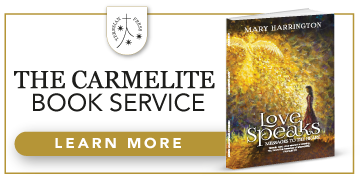Sorry, no records were found. Please adjust your search criteria and try again.
Sorry, unable to load the Maps API.
In a move that has been criticised as “demeaning of education”, a prestigious Russell Group university has placed a trigger warning on Chaucer’s The Canterbury Tales because of what it claims is its potentially offensive “expressions of Christian faith” (GB News,Telegraph, Standard).
Under Freedom of Information (FoI) laws, the Mail on Sunday obtained details of the notice issued to students at the University of Nottingham who are enrolled on a module called ‘Chaucer and His Contemporaries’. It alerts them to incidences of violence, mental illness and expressions of Christian faith in the works of Chaucer as well as other medieval writers, including William Langland, John Gower and Thomas Hoccleve.
Written between 1387 and 1400, Chaucer’s medieval collection of 24 tales tell the story of a group of diverse characters on a pilgrimage from London to the tomb of Saint Thomas Becket at Canterbury Cathedral – including the promiscuous Wife of Bath, the bawdy, cheating Miller, and the Prioress, who is overly concerned with manners and appearance.
However, concerns have been raised after the university of Nottingham added a trigger warning to the study module that some students might find the representations of late-Medieval Christianity ‘problematic’ and ‘dangerous’.
Andrea Williams, the chief executive of Christian Concern, told the Daily Telegraph that “without an understanding of the Christian faith there will be no way for students to access the world of Chaucer and his contemporaries.
“From what point in history are we going to censor literary texts given most are steeped in a Christian world view?” she added. “Trigger warnings for Christian themes in literature are demeaning to the Christian faith and stifle the academic progress of our students.
In a statement published on X, the Nottingham University Catholic Society said it was “shocked” by the announcement.
“This sends a deeply concerning message to all students that Christian beliefs – which are central not only to many University students, but also to the intellectual and cultural foundations of English history – are somehow offensive or harmful to others,” said Elizabeth Pey, President of the Catholic Society and Thomas Morris, Vice President.
“To single out Christian perspectives this way is to dismiss the vital role that Christianity has played in shaping this country’s literature, philosophy and society.
“To reduce these themes to something that requires a trigger warning marginalises the beliefs of many students – and creates an environment of division, rather than of dialogue.
“The University of Nottingham should allow for students to engage with various worldviews and grapple with them with respect and thoughtfulness. The implications that Christian values are uniquely problematic is a severe form of discrimination that has no place in academia.
“We call on the university to reconsider this policy, and reaffirm its commitment to academic freedom and respect for all religions.”
Their concerns were shared by the Catholic chaplain to Nottingham University, Fr David Palmer, who said: “To be fair… most people know this is nonsense… even students… which is why the whole thing is so egregious… our institutions have been taken over by small minded lemmings in thrall to nonsense…”
Frank Furedi, emeritus professor of sociology at the University of Kent, said: “Warning students of Chaucer about Christian expressions of faith is weird. Since all characters in the stories are immersed in a Christian experience there is bound to be a lot of expressions of faith. The problem is not would-be student readers of Chaucer but virtue-signalling, ignorant academics.’
A spokesperson for the university said it “champions diversity”, adding: “Even those who are practising Christians will find aspects of the late-medieval worldview… alienating and strange.”
In 2022, a Times investigation uncovered 1,081 ‘trigger warnings’ applied to texts across undergraduate courses in the UK.
It also revealed that 10 universities, including Russell Group members Warwick, Exeter and Glasgow, had actually removed or made optional books that students might find ‘harmful’.




































